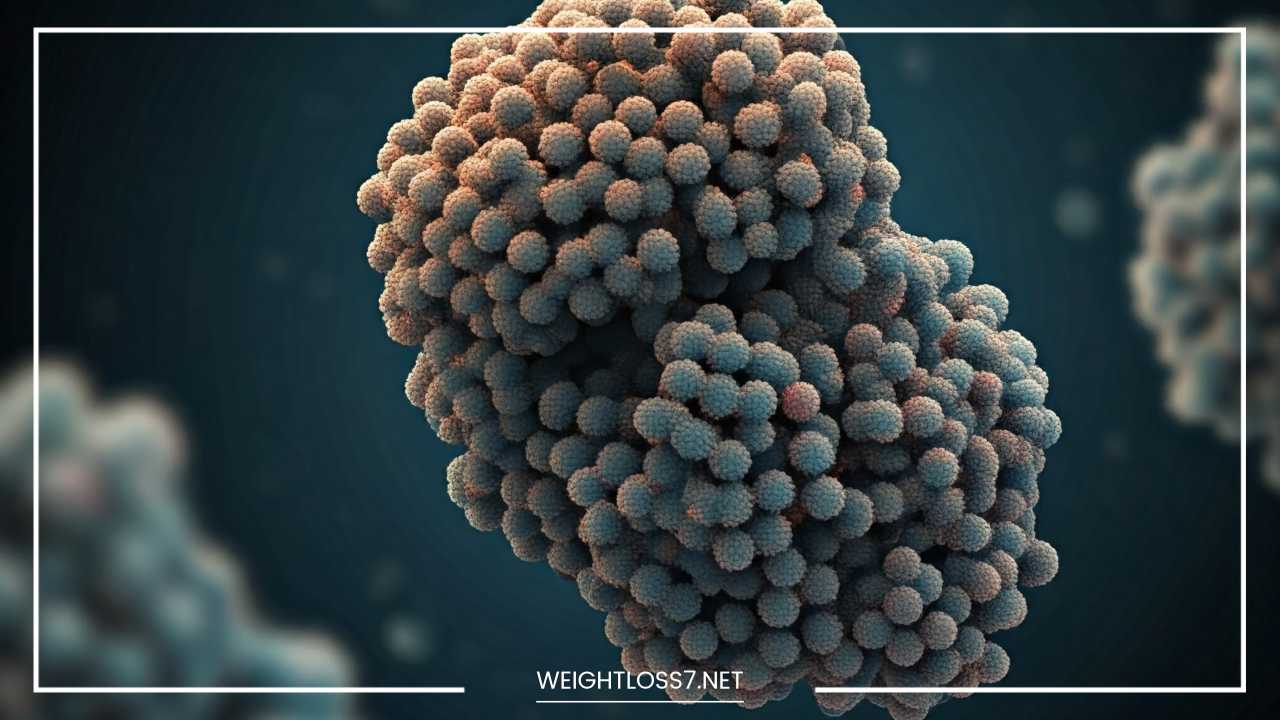Staying Healthy While Using PPIs

PPIs
Proton Pump Inhibitors (PPIs): Managing the Risks and Staying Healthy
Proton Pump Inhibitors (PPIs) are among the most commonly prescribed medications in the world. These medications are essential for managing various gastrointestinal (GI) conditions, such as acid reflux (GERD), peptic ulcers, and Zollinger-Ellison syndrome, by effectively reducing the production of stomach acid.
However, while PPIs are highly effective at managing these conditions, their long-term use can lead to a range of potential health risks.
These risks need to be carefully managed to ensure that the benefits of PPIs outweigh any negative outcomes.
This guide will help you understand the risks associated with long-term PPI use, ways to minimize these risks, and practical advice on maintaining your overall health while using these medications.
What Are Proton Pump Inhibitors (PPIs)?
PPIs are a class of drugs that reduce stomach acid production by blocking the proton pump (H+/K+ ATPase), which is responsible for secreting acid into the stomach. PPIs are commonly prescribed for a range of digestive disorders, including:
- Gastroesophageal reflux disease (GERD): A condition where stomach acid frequently leaks into the esophagus, causing heartburn, irritation, and potential damage to the esophageal lining.
- Peptic ulcers: Sores that develop on the lining of the stomach, small intestine, or esophagus due to the erosion caused by stomach acid.
- Helicobacter pylori infection: A bacterial infection that can contribute to the formation of ulcers.
- Zollinger-Ellison syndrome: A rare condition where tumors in the pancreas or duodenum cause excessive production of stomach acid.
Common PPIs include omeprazole (Prilosec), lansoprazole (Prevacid), esomeprazole (Nexium), pantoprazole (Protonix), and rabeprazole (AcipHex).
While PPIs are incredibly effective at reducing stomach acid and providing relief from symptoms, particularly heartburn and ulcers, long-term use has been linked to a number of potential side effects and health risks.
Understanding the Risks of Long-Term PPI Use
Though PPIs are widely used, research and clinical evidence suggest that prolonged use—especially over the course of several months or years—can pose various health risks.
Below, we explore some of the most common and concerning risks associated with long-term PPI therapy.
1. Nutrient Deficiencies
One of the most significant risks of prolonged PPI use is the potential for nutrient deficiencies. The reduction in stomach acid caused by PPIs can interfere with the body’s ability to absorb certain essential vitamins and minerals, leading to deficiencies over time. Some of the most commonly affected nutrients include:
- Vitamin B12: Vitamin B12 is crucial for nerve function, red blood cell production, and DNA synthesis. Stomach acid is necessary for the absorption of B12 from food, so reduced acid levels can impair B12 absorption, potentially leading to pernicious anemia, fatigue, neurological symptoms, and cognitive issues.
- Iron: Stomach acid helps convert iron into a more absorbable form. Long-term PPI use can impair this conversion, increasing the risk of iron-deficiency anemia. Symptoms of anemia include weakness, dizziness, and shortness of breath.
- Calcium: Calcium is essential for strong bones and normal muscle and nerve function. Since stomach acid is necessary for the absorption of calcium, reduced stomach acid from long-term PPI use may impair calcium absorption, contributing to weakened bones and an increased risk of fractures, particularly in older adults.
- Magnesium: Magnesium is involved in muscle function, nerve transmission, and heart health. Prolonged PPI use can reduce magnesium absorption, potentially leading to hypomagnesemia (low magnesium levels). Symptoms can include muscle cramps, irregular heart rhythms, and seizures in severe cases.
2. Increased Risk of Infections
The reduction in stomach acid caused by PPIs not only affects nutrient absorption but can also alter the balance of bacteria in the digestive tract.
Stomach acid serves as a natural barrier to pathogens and harmful bacteria, preventing them from reaching the intestines.
When this defense mechanism is weakened by PPIs, it increases the risk of infections. Some of the most concerning infections linked to long-term PPI use include:
- Clostridium difficile (C. difficile): C. difficile is a bacterium that can cause severe diarrhea, abdominal pain, and fever. This infection is particularly common in people who have been hospitalized or have used antibiotics. PPIs increase the risk of C. difficile infection by altering the gut microbiome and reducing the stomach’s acidity, which normally helps to control the growth of harmful bacteria.
- Pneumonia: Studies have shown that PPI use may increase the risk of developing community-acquired pneumonia. This may be due to the alteration of the upper gastrointestinal microbiota, which could affect the respiratory tract and increase the likelihood of respiratory infections.
- Small Intestinal Bacterial Overgrowth (SIBO): Long-term use of PPIs has been associated with an increased risk of SIBO, a condition in which bacteria that normally reside in the colon proliferate in the small intestine. This can cause bloating, gas, diarrhea, and malabsorption of nutrients.
3. Bone Fractures and Osteoporosis
Long-term PPI use has been linked to an increased risk of bone fractures, particularly in older adults. The reduced calcium absorption associated with PPIs can lead to weakened bones, increasing the risk of osteoporosis and fractures.
Studies have found that PPI users have a higher risk of fractures in the hips, wrists, and spine.
The mechanism behind this risk is thought to involve a reduction in calcium absorption, which is essential for maintaining bone density.
Some studies have also suggested that PPIs may interfere with the body’s ability to form new bone tissue, contributing further to bone loss.
4. Kidney Problems
Research has also raised concerns about the potential link between long-term PPI use and kidney problems.
Some studies have shown that prolonged PPI use can increase the risk of chronic kidney disease (CKD) and acute kidney injury (AKI).
The exact cause of this is still being studied, but some theories suggest that PPIs may cause kidney inflammation or damage to kidney cells, particularly in people who are already at risk for kidney disease.
A study published in JAMA Internal Medicine in 2016 found that long-term PPI use was associated with a 20–50% higher risk of kidney disease, especially in people who were already using other medications that can harm the kidneys.
How to Minimize the Risks of PPIs
While the risks associated with long-term PPI use are important to consider, it’s essential to remember that these medications are still highly effective for treating acid reflux and other gastrointestinal conditions.
If you have been prescribed a PPI, there are several strategies you can use to minimize the risks and manage your overall health.
1. Consult Your Doctor Regularly
If you are using PPIs long-term, regular check-ups with your healthcare provider are essential. Your doctor can help monitor for potential side effects and determine whether you still need to be on a PPI.
Some doctors may recommend periodic blood tests to check for nutrient deficiencies, kidney function, and other potential complications.
It’s also important to discuss whether alternative therapies might be appropriate if your symptoms improve or if side effects develop.
2. Make Lifestyle Modifications to Reduce Acid Reflux
In many cases, lifestyle changes can help manage acid reflux symptoms, potentially reducing the need for PPIs or allowing for a lower dose. Consider making the following changes to your daily routine:
- Avoid Trigger Foods: Certain foods and beverages, such as spicy foods, citrus fruits, tomatoes, caffeine, chocolate, alcohol, and mint, can trigger acid reflux symptoms. Keeping a food diary can help you identify and avoid your specific triggers.
- Eat Smaller Meals: Eating large meals can put pressure on your stomach and lead to acid reflux. Eating smaller, more frequent meals throughout the day can help prevent this.
- Elevate the Head of Your Bed: If you experience reflux symptoms at night, try elevating the head of your bed by 6–8 inches. This helps prevent stomach acid from rising into the esophagus while you sleep.
3. Consider Dietary Supplements
Because PPIs can interfere with the absorption of several important nutrients, taking supplements may help prevent deficiencies.
Talk to your doctor before starting any new supplements. Some of the most commonly recommended supplements for PPI users include:
- Vitamin B12: Supplementing with B12 may be necessary if your levels are low. B12 can be taken orally or through injections, depending on the severity of the deficiency.
- Iron: If you’re at risk for iron-deficiency anemia, your doctor may recommend an iron supplement.
- Calcium: A calcium supplement, particularly in the form of calcium citrate (which is better absorbed without stomach acid), may be beneficial for maintaining bone health.
- Magnesium: If magnesium levels are low, a supplement may help improve muscle and heart function.
4. Limit the Duration of PPI Use
In many cases, PPIs should only be used for the shortest duration necessary to manage symptoms.
If you are using PPIs for chronic acid reflux, discuss with your doctor whether it’s possible to reduce the dose or switch to over-the-counter medications like H2 blockers (e.g., ranitidine or famotidine). H2 blockers are less potent than PPIs and can be effective for milder symptoms.
If you’ve been using PPIs for a long time, it’s essential to work with your doctor to gradually taper off the medication rather than stopping abruptly, as this can lead to rebound acid production.
Practical Tips for Safe PPI Use
While managing the risks associated with PPIs, consider these additional tips to optimize your health:
1. Take PPIs as Prescribed
It’s essential to take PPIs exactly as prescribed by your healthcare provider. Do not exceed the recommended dose, and try to take the medication at the same time each day to establish a routine.
2. Don’t Stop Taking PPIs Abruptly
Sudden discontinuation of PPIs can cause rebound acid hypersecretion, where the stomach produces more acid than before, worsening your symptoms. Always consult your doctor before making any changes to your PPI regimen.
3. Stay Hydrated
Drinking plenty of water is important for supporting kidney function and preventing dehydration, which can become an issue with long-term PPI use.
4. Maintain a Balanced Diet
Eating a nutrient-dense diet will help ensure you’re getting the necessary vitamins and minerals, especially if you’re at risk for deficiencies due to PPI use. Include plenty of fruits, vegetables, whole grains, and lean proteins in your diet.
Final Thoughts
Proton Pump Inhibitors (PPIs) are highly effective for treating conditions like GERD, ulcers, and other acid-related disorders.
However, long-term use of PPIs can lead to several health risks, including nutrient deficiencies, increased susceptibility to infections, bone fractures, and kidney problems.
By staying informed about these potential risks and taking proactive measures, such as consulting your doctor regularly, making lifestyle modifications, and considering dietary supplements, you can minimize side effects and maintain your overall health while using PPIs.
Always remember to follow your doctor’s advice and prioritize your long-term health.

















